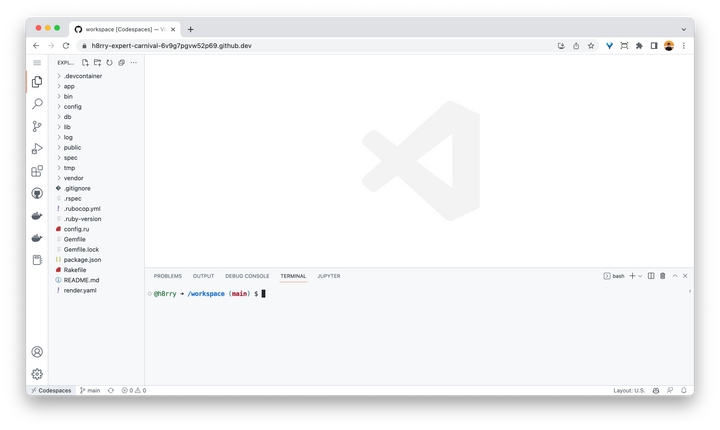How long does it take to learn Ruby
Introduction
Are you interested in learning to code, but unsure of which programming language to start with? Look no further than Ruby! Ruby is an excellent choice for beginners due to its simplicity and readability. But how long does it actually take to learn Ruby? In this blog, we will explore the factors that influence the time it takes to learn Ruby and provide you with an estimate of how long it might take you to master this programming language.
What is Ruby?
Ruby is a high-level, interpreted, and object-oriented programming language designed by Yukihiro "Matz" Matsumoto in the 1990s. It was created with the goal of making programming more enjoyable and accessible for everyone. Ruby is recognized for its clean and elegant syntax, which makes it easier to read and understand by both beginners and experienced programmers alike.
Some popular applications built using Ruby include Airbnb, GitHub, and Shopify. The Ruby on Rails web framework, built with Ruby, has also gained popularity for developing web applications quickly and easily.
Factors Influencing the Time to Learn Ruby
The time it takes to learn Ruby depends on several factors, including:
1. Your Prior Programming Experience
If you have experience with other programming languages, it might be easier and quicker for you to pick up Ruby. This is because programming concepts such as variables, loops, and conditionals are universal to many languages. However, if you're entirely new to programming, it might take you longer to grasp these concepts.
2. The Amount of Time You Can Dedicate
The time you can dedicate to learning Ruby will significantly impact how long it takes you to learn it. If you can spend several hours a day learning and practicing Ruby, you'll likely progress much faster than someone who can only dedicate a few hours a week.
3. Your Learning Style
Everyone learns differently. Some people prefer to jump right into coding and learn through trial and error, while others prefer a more structured approach with tutorials and courses. Your learning style will influence the time it takes to learn Ruby, as some methods may work better for you than others.
4. The Depth of Knowledge You Want to Acquire
The time it takes to learn Ruby will depend on how deep you want to go with your knowledge. If your goal is to learn the basics and build simple applications, it will take you less time than if you want to become an expert in Ruby and develop complex applications.
How to Learn Ruby Efficiently
Now that we've discussed the factors influencing the time to learn Ruby let's explore some tips and resources to help you learn Ruby efficiently.
1. Begin With the Basics
Start by learning the fundamentals of Ruby, such as data types, variables, loops, and conditionals. This will give you a solid foundation to build on as you progress in your learning journey.
2. Practice Regularly
Practice makes perfect. The more you code, the better you'll become at it. Set aside time each day or week to practice your Ruby skills. This can be through coding exercises, building small projects, or simply experimenting with different Ruby features.
3. Use Online Resources
There are plenty of online resources available to help you learn Ruby. Some popular websites include:
- Altcademy is a 100% online coding bootcamp that offers a comprehensive, affordable, and effective learning experience.
- Ruby in Twenty Minutes: A quick introduction to Ruby from the official Ruby website, perfect for getting your feet wet.
- Ruby Koans: A set of exercises designed to help you learn Ruby through test-driven development.
4. Join a Community
Being part of a community can be incredibly beneficial for learning. Join online forums, Slack groups, or local meetups to connect with other Ruby learners and experienced developers. This will give you the opportunity to ask questions, share your knowledge, and learn from others.
5. Build Projects
One of the best ways to learn any programming language is by building projects. Start with small projects that focus on specific Ruby concepts and gradually move on to more complex projects as your skills improve.
Estimated Time to Learn Ruby
With these factors and tips in mind, let's estimate how long it might take you to learn Ruby:
Absolute beginner with no programming experience: If you're entirely new to programming and can dedicate 10-15 hours a week to learning Ruby, it might take you around 2-3 months to learn the basics and start building simple projects. To become proficient in Ruby, you may need an additional 3-6 months of consistent practice and building more complex projects.
Experienced programmer learning Ruby: If you have prior programming experience and can dedicate 10-15 hours a week to learning Ruby, you might be able to learn the basics in just a few weeks. To become proficient in Ruby, you may need an additional 1-3 months of practice and building projects.
Keep in mind that these are just estimates and may vary depending on your individual learning style and the resources you use to learn Ruby.
Conclusion
Learning Ruby is an excellent choice for those interested in programming, as its simplicity and readability make it accessible for beginners. The time it takes to learn Ruby will depend on factors such as your prior programming experience, the amount of time you can dedicate to learning, your learning style, and the depth of knowledge you want to acquire.
By following our tips and utilizing available resources, you can efficiently learn Ruby and start building your own applications. Remember, learning to code is a journey, and practice is key to becoming proficient in any programming language. Happy coding!




